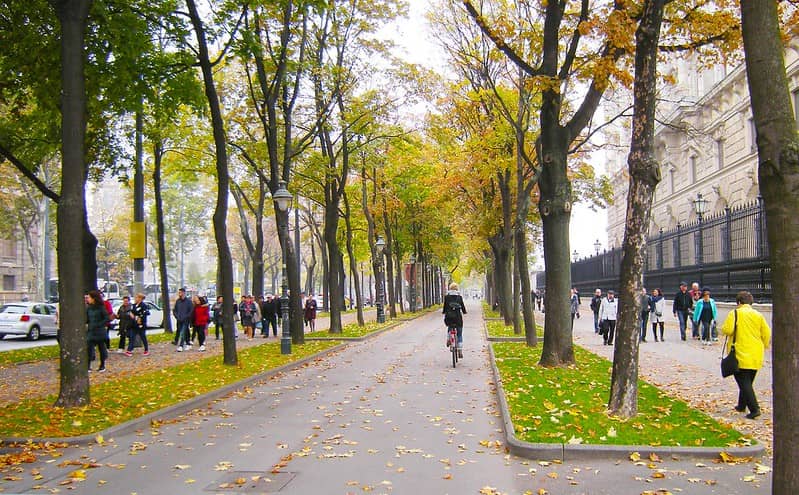Smart City and its advantages and disadvantages
Smart City is a smart city that combines technology with information to improve quality of life, reduce energy costs and environmental impact.

Any city in the world that lends itself wants to have or sponsor the Smart City or Smart Town label. A very wide concept with different versions and guidelines that we could reduce in one sentence - Smart City is an intelligent city that combines technology with information to improve the quality of life, reduce energy costs, and environmental impact. Obviously as a definition in itself it is not new given that initially before the appearance of this idea, let's call it Cool, there were sustainable cities, habitable cities, healthy cities, safe cities, bioclimatic cities, green cities, etc.
Why do Smart Cities appear?
More than half of the world's population lives in cities, according to the United Nations forecast that 70% of human beings will live in urban centers by 2050. This organization... "warns that the increase in the population of cities can become a real problem unless harmony is maintained between the spatial, social and environmental aspects of the localities, as well as between their inhabitants"... The influence of these consequences poses a challenge.
At the same time, seeing the new business opportunities that arise, the large information, computer, and electronics companies take advantage of this social situation to obtain a new consumer market. Smart City is sponsored, where technology is an important factor.
Smart city concept
In collaboration with Barcelona, Buenos Aires, and other major cities around the world, Boyd developed a set of indicators to support the benchmarking of smart cities. Digital cities can be identified (or categorized) in six dimensions. Digital economy, Digital mobility, Digital ecosystem, Digital citizenship, Digital life, Digital governance.
The smart cities wheel is a holistic framework for considering the key components that make a city smart. These six axes or dimensions are connected to the theories of urban development and growth. And, to be more specific, they are based - respectively - on theories of regional competitiveness, transport and ICT economics, natural resources, social and human capital, quality of life, and citizen participation in the governance of cities.
Factors in smart cities
Savings in services and sources of value
The automatic and efficient administration of urban infrastructures will range from the possibility of creating new services that better respond to the specific needs of each city, to the possibility of identifying future problems that the urban space may face.
Supporting the evolution of cities
There are a series of factors that must be complemented in the extension of any city whose deficiencies must be supported and helped by other resources while determining future problems and being able to act "before they occur". This ideal or idealized model of a city that needs a digital transformation in a suitable technological environment encompasses a series of subcategories:
Distributed generation
It consists of the intelligent city having electricity generation distributed throughout the territory: supply is personalized, micro-generation, not centralized.
What is eMobility?
Implementation of the electric vehicle in cities and other motorized elements, such as motorcycles, and the respective public and private recharging stations.
What is the Smart Citizen?
The citizens and inhabitants are undoubtedly the essential part, while without their active participation it is not possible to make these ideas.
What are Smart Grids?
Smart Grids are interconnected intelligent networks, which have a two-way flow of data between the Service Center or Control Center and the user who lives in the city.
What are Smart Buildings?
As a model of effectiveness and efficiency, buildings must be smart and more energy efficient. Buildings with domotics and other electronic elements that respect the environment and have integrated energy production systems.
What is Smart Metering?
It is the intelligent measurement of the energy expenditure data of each user, using remote meters where the readings are made remotely and in real-time.
What are Smart Sensors?
Smart Sensors are going to have the function of summarizing every one of the precise data to make the city more intelligent. They are an essential part of sustaining connectivity and information and making each subsystem perform its function.
Information and Communication Technologies (ICT)
These are the information technologies that will assist in the supervision of the different subsystems that make up the capital, through which citizens and administrative entities can actively participate in the control of the city. A city can be described as digital (or intelligent) when it invests in human and social capital, in traditional (transport) and modern (ICT) infrastructure, in fuel communication infrastructure, in sustainable economic development and high quality of life, with rational management of natural resources, through participatory management.
What are the advantages of Smart Cities?
As we can see in the infographic on the cover of this article, there must be and coexist a symbiosis in four points of reference to provide a solid base; Human Aspect, Government, Environment and Economy that will imply a commitment of the different agents involved in a process of constant improvement to improve the quality of life, both of the environment and its inhabitants, so the advantages of Smart City are as follows:
It is closely related to the evolution towards the so-called Internet of the Future, particularly about the Internet of Things or IoT. Increase of a new business model and opportunity. New services that better respond to the specific needs of citizens.
Automatic and efficient management of urban infrastructures. Improved energy savings, energy efficiency improvements ...etc. Improvement in mobility and urban parking management, to improve traffic and reduce parking times, reduce queues and waiting times at municipal offices and health centers, etc.
Smart Cities improve urban planning and the environment. More and better green areas, peripheral areas, etc. Reduction of the expenses that a property can produce, electricity, community...etc. Reduction and optimization of time for the consumer.
What are the most outstanding achievements?
Although it should be noted that each city is a world and according to administrations have led the implementation in one direction or another, if we can highlight some major achievements as:
Regulated lighting to reduce energy costs.
Smart cards for citizens such as health IDs, transportation cards, etc.
Cars that park alone are capable of finding free parking spaces for users.
Mobility systems based on bicycle sharing.
In smart cities we find different apps to interact with the city.
Intelligent water supply, intelligent energy management (public lighting, etc.), and more efficient waste management
Surveillance systems at all levels theoretically maximize security for citizens.
Better traffic control.
Faster assistance; from accidents to improved infrastructure.
What are the disadvantages of Smart Cities?
Not all that glitters is gold, and in the world of technology cities, several disadvantages are strongly associated with the technological aspect that can produce setbacks in the expansion of the city. The problems of smart cities are:
Financing by the government requires a significant investment in technology.
Given the implementation of a high degree of technology in smart cities, they depend on companies that offer these services. Both at public and private levels.
Reduction of privacy. "To be more efficient, we must observe what habits the consumer has in all aspects and levels"
Real estate is expensive. They are more complex to execute and build.
Greater technological gaps between cities and realities. Not all cities can assume such a cost.
Due to the complexity that Smart Cities absorb, they produce at the same time a considerable increase in waste.
Both the advantages and disadvantages are of the appreciation that I have been able to observe and that surely many more can be listed in both cases, what I do perceive is that Smart Cities sell us the need of the future and I do not know if I am convinced that they know how many times I pass by the corner of "X" street or that my house has more "Electronic Cachivaches" than the electronic store in my neighborhood, as examples, all for... "Being more efficient" or for improving the environment and the natural surroundings, in theory, in complex ecosystems for the users' habitat.
Smart city examples
Although it may not seem so, as an example from Spain, there are a great variety of smart cities that are implementing different improvement projects in this sense (Here to see them all in Spain and here in Europe). One of the most recognized cities both nationally and internationally is the city of Santander Smart City.
Part of the blame lies with the approximately 12,000 fixed and as many mobile sensors placed over the last few years in strategic locations in the street map of Santander: buildings, street lights, wastebaskets, cars, and municipal buses now transformed into a kind of information laboratory throughout the city.
With all the sensors, the local authorities are achieving an example of a smart city able to discover and be informed of a multitude of variables, in real-time; the precise location of its bus fleet, the humidity conditions of each corner of the city, the traffic situation, the pollution indexes or the noise level of the municipality.
In other words, they can make decisions more intelligently and manage every one of the resources involved in the day-to-day running of the city, both public and private, in a more efficient way in terms of costs and environmental impact. (Interesting analysis of the implementation of the smart-city concept here in the city)
Collective participation must be a necessary act for the technological transition and for this purpose a collective portal - forum called Santander City Brain has been established




